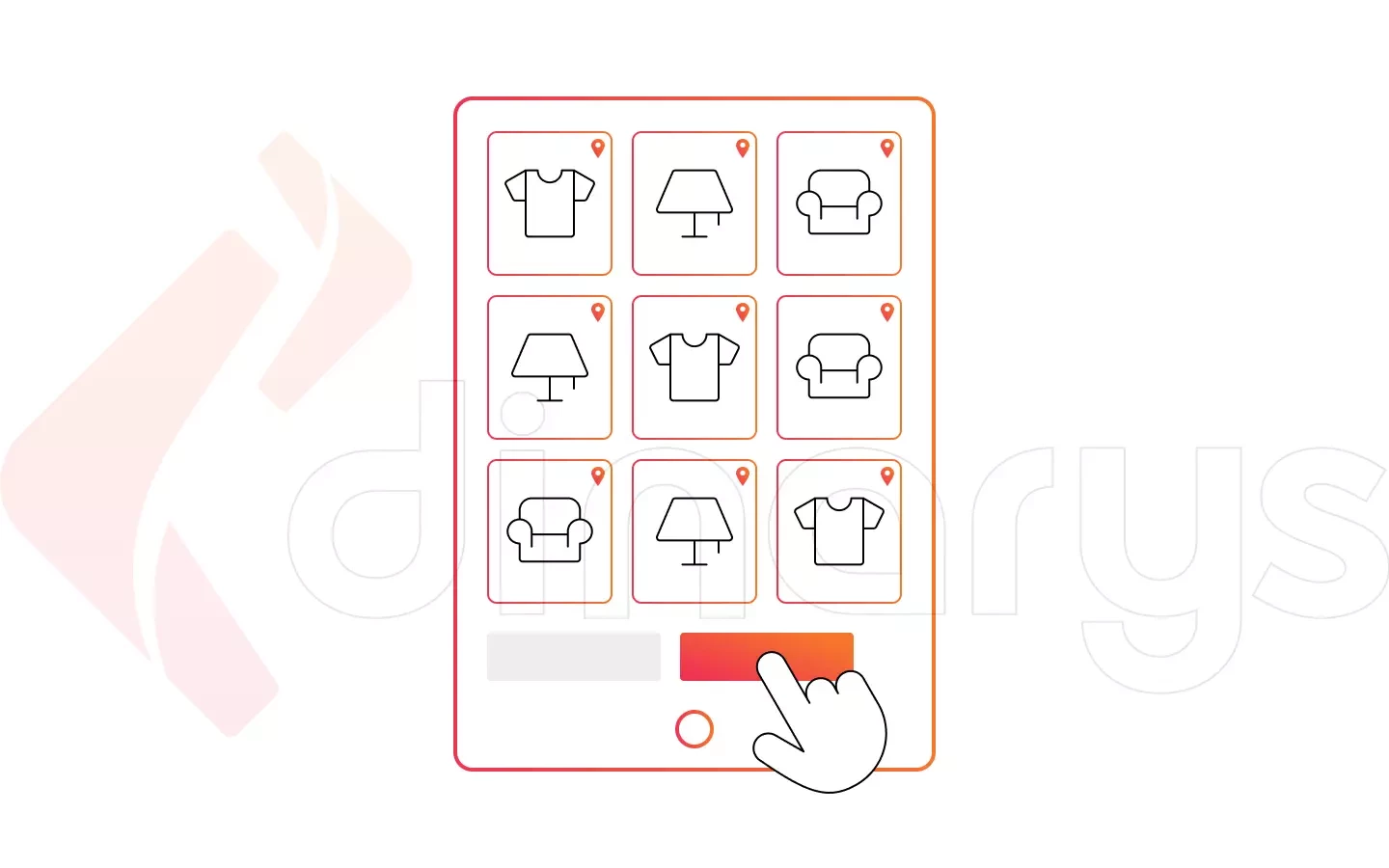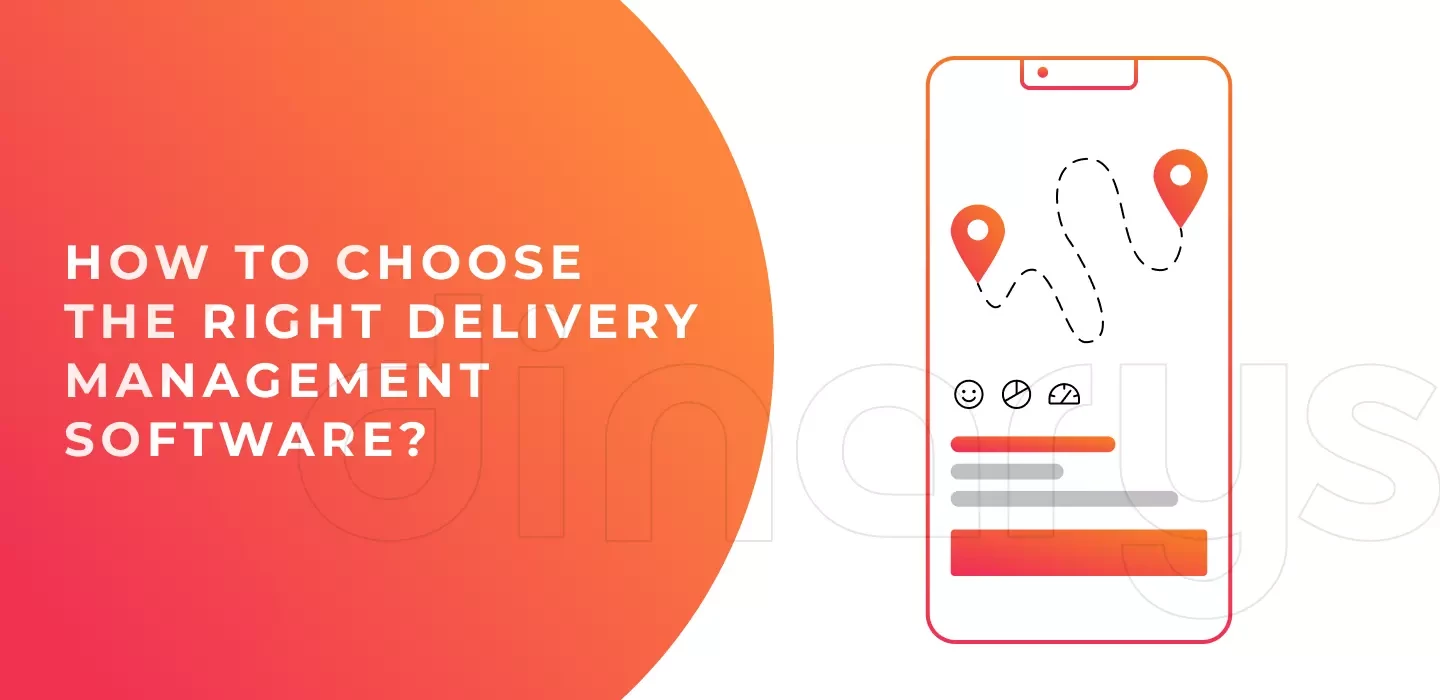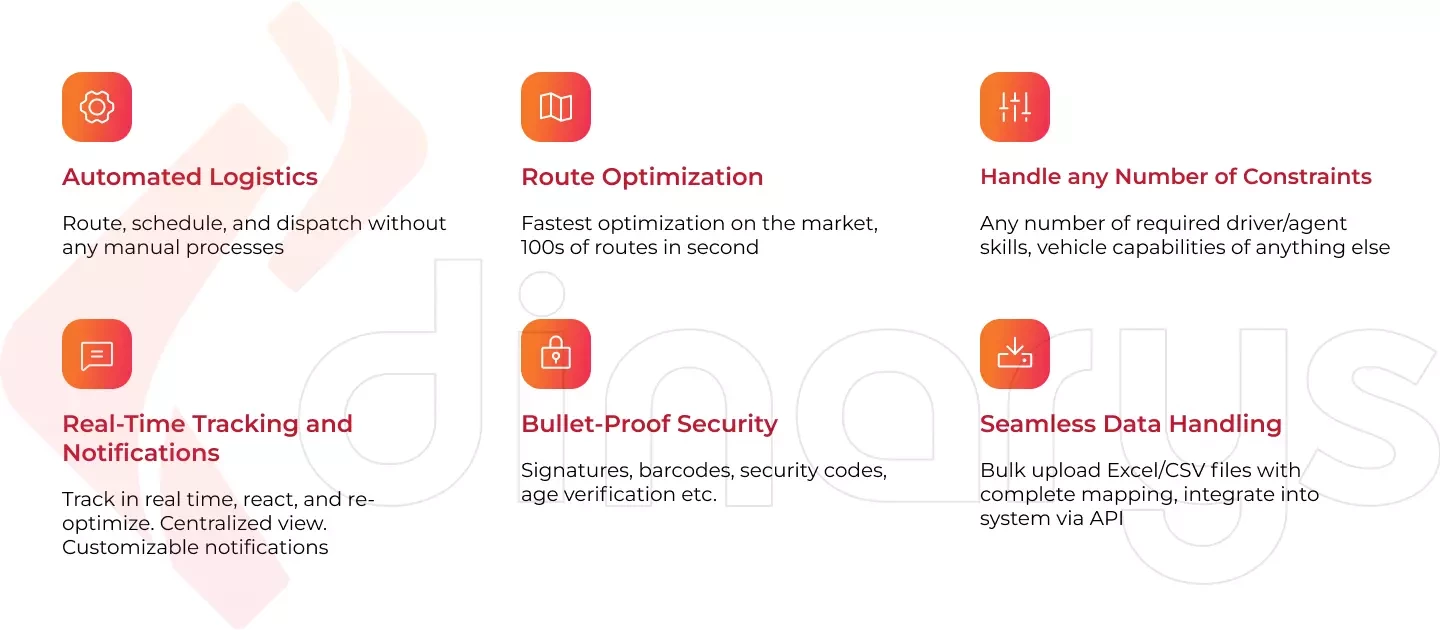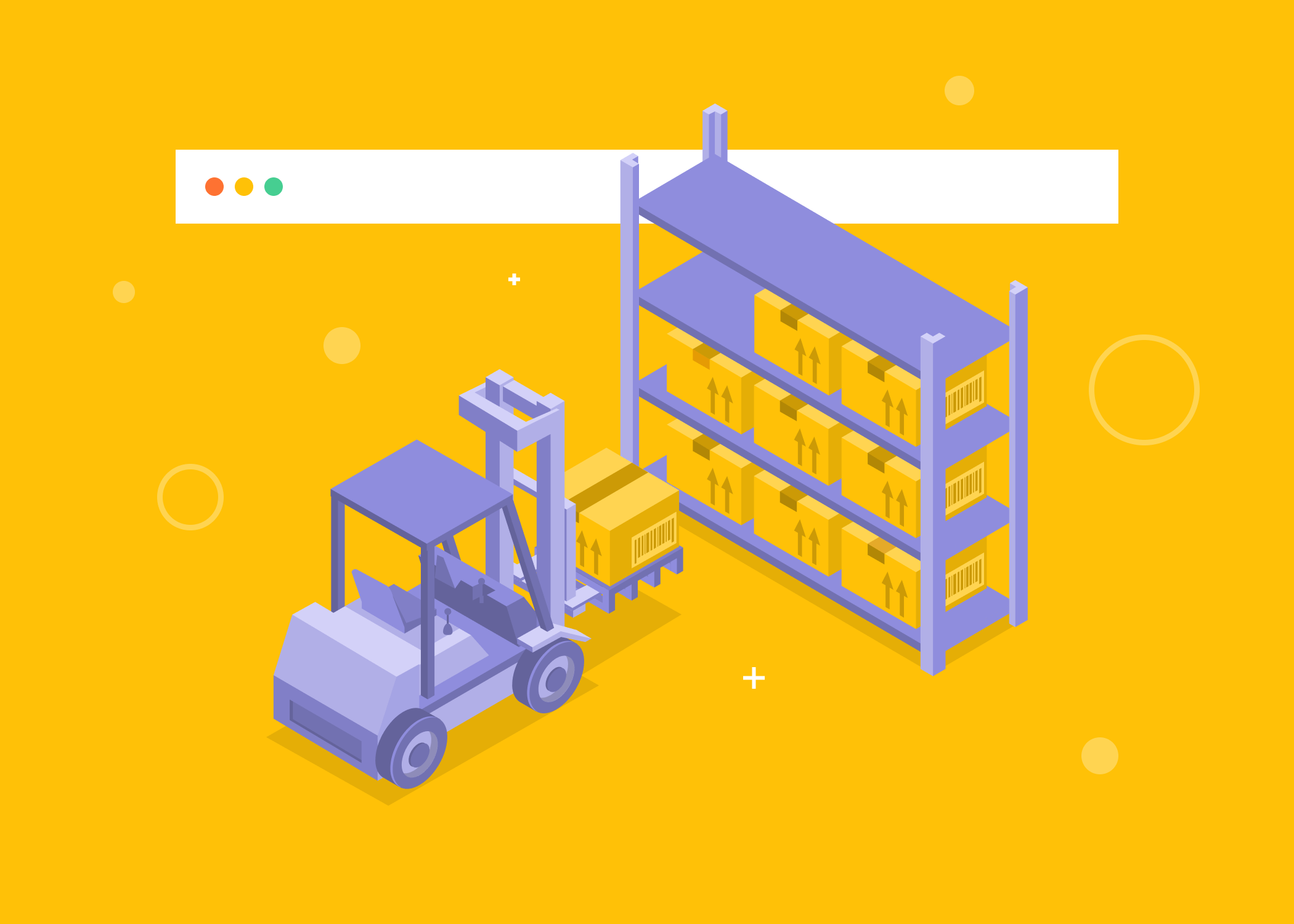Content
Best Delivery Management Software

Time to read: 15 minutes
Today’s rapid pace has made e-commerce delivery software an integral part of our lives because we expect to receive our orders from e-commerce websites within days. We also prefer personalized deliveries that allow us to track our parcels at all times.
One of the most common functions of e-commerce delivery software is the automation of the various steps involved in picking up, delivering, and handling parcels. This article discusses the different types of delivery management software and explains how they can help improve the efficiency of your business.
What Is Delivery Management Software?
Delivery management software (DMS) is a centralized system that streamlines delivery operations from start to finish, including issuing delivery jobs, planning routes, tracking shipments in real time, and providing electronic proof of delivery.
.webp)
The DMS program provides all the information a driver needs to deliver an item by establishing a connection between the driver and the back-end office through a single platform.
In fact, merchants and end users can benefit from DMS. Businesses can automate their pickup and dispatch procedures and identify the optimum routes for speedy customer delivery. On the other hand, end users can view their shipping information and track the status of their packages in real time.
The importance of delivery management systems to e-commerce businesses
Many businesses use DMS to track shipments and guarantee the efficient delivery of items to their clients. Companies benefit from the deployment of cutting-edge DMS through increased customer satisfaction, better asset utilization, and decreased fuel consumption.
Businesses should consider using DMS for their delivery operations for the following reasons:
.webp)
Faster delivery
By implementing delivery software, you give your drivers more time to deliver orders. You can choose the delivery route that covers all of their stops and that is short and quick to complete.
You do not have to use valuable time to plan each route manually. Instead, you can easily upload your list of delivery addresses using the DMS features of route planning and optimization.
Excellent customer service
We have all received a message from a business stating that our order will be delivered on Friday between the hours of 9 a.m. and 6 p.m. We know this can be frustrating.
Smart organizations that want to reduce client attrition and expand their business prioritize consumer expectations on their list of objectives. By limiting delivery periods and enabling continuous, up-to-date communication, DMS eliminates this customer service killer.
For more information, read “A Complete Guide to E-Commerce Logistics.”
Reduced fuel costs
You will save time and fuel costs if you deliver your orders using the quickest and most effective routes.
Your delivery software can track traffic conditions and provide updates that prevent the waste of gasoline while idling in congested areas. Recipient notifications make sure someone will be at the delivery address when your driver knocks on the door, saving your company the extra time and fuel costs associated with returning to an address to redeliver an item.
Lets talk about itHave a project in mind?
Effective order management
Your life will be easier with DMS, which enhances order management and provides end-to-end visibility of the delivery process. Your delivery team can utilize the interface to assign tasks to your drivers and schedule deliveries and pickups.
Effective order management allows you to keep an accurate picture of every order without searching through hundreds of spreadsheet entries. The system also monitors any potential delays with scheduled deliveries and on-demand orders. Furthermore, you are immediately informed when a delivery is completed, eliminating the possibility of mismanagement.
Electronic proof of delivery
Proof of delivery (POD) provides documentation that customers have actually received their products. POD has traditionally been evidenced by the client’s signature on delivery documents.
To simplify and speed up the documentation of delivery, many e-commerce businesses have switched to electronic proof of delivery (ePOD), which reduces paperwork while capturing the information and images needed to confirm the full or partial delivery of a shipment and any damage. Many businesses now employ contactless ePOD, which uses digital images with GPS locations to record deliveries and streamline operations.

The ePOD feature, which is generated by DMS, reduces unnecessary paperwork, enhances onsite operational efficiency, increases customer satisfaction and retention, maximizes workflow productivity, and provides many other benefits. For example, ePOD immediately sends a confirmation notification to the office and the client after your driver has finished the delivery.
Factors to Consider When Selecting DMS
Many e-commerce businesses search for the best DMS in today’s technology-driven world. It is wise to adopt this strategy to manage output effectively and ensure smooth operations.

The best types of delivery logistics software contain the following features:
- Shipping weight calculator. Most logistics organizations are looking for DMS that provides automatic weight calculation capability to avoid complaints from clients regarding product quantity. Additionally, this feature speeds up the overall delivery process.
- Real-time notifications. Real-time notifications keep you up to date with current and upcoming events. This is another way to demonstrate the professionalism of your business, and it has a lasting impact on your customers. Consistent notifications to customers result in exceptional customer retention.
- Route planning. You will obtain the best results by properly planning your routes. Another important DMS feature is accurate geocoding because it facilitates efficient deliveries that improve the flow of your business operations. Real-time tracking is simple when routes are planned properly.
- Inventory control. Inventory management is one of the most crucial functions of any logistics organization because it optimizes the stock of goods and raw materials in any DMS. Software that provides effective inventory control facilitates the proper flow of products.
For additional information, read “Five Cost-Reduction Strategies for Supply Chain Management.”
- Responsive and user-friendly interface. The software must be simple for your employees and clients to use. The responsive design should allow users to glide their fingers over the screen to view all the information, including shipment history, inventory counts, and product histories. This functionality will impress your clients.
- Easy integration with e-commerce. You must combine your DMS with e-commerce to ensure that service is simple for customers and to foster positive consumer relationships. It increases quote accuracy and allows you to obtain the necessary information for less money.
Must-have DMS features
You should learn about the software’s capabilities and benefits to your business before investing. A few of the important features are listed here.
Automatic dispatch
Automatic dispatch makes it easy to assign tasks to agents based on their proximity, availability, and priority. Administrators do not plan which tasks to give to which agents by using the automatic dispatch function. Instead, the work is completed automatically without any prior planning. It takes longer for the administrator to complete this process manually.
Online chat
For a fantastic delivery experience, communication between the consumer and the administrator is essential. Today’s DMS must include an online chat feature that effectively responds to consumer questions without human participation.
Reports and dashboards
To comprehend and make decisions about complex delivery operations, executives and back-office operational teams also rely on DMS to report on logistics operations.
For more information, read “Supply Chain Visibility: Definition and Importance.”
Many different professionals, who work on internal and external teams, such as outsourced fleets, are involved in the e-commerce supply chain. Each professional needs a customized dashboard with specific insights and rights. For example, a regional manager may need a report or dashboard to review KPIs for each site and fleet. However, a contracted fleet dispatcher may only need to view this data for his or her drivers.
An end-to-end delivery management platform provides the appropriate authorization levels and data for experts who work in the supply chain by using dashboards created just for them. The same is true for reporting tools designed specifically for certain supply chain participants.
Live agent tracking
Customers can access real-time information about agents on a live map. If the agent’s arrival is delayed, customers can plan their days without any inconvenience. Customers can observe the agent’s actual position in the event of traffic congestion or other unforeseen problems. This real-time tracking maintains positive client connections.
Requests for customer feedback
Organizations can monitor fulfillment performance and find problems to correct by sending automated requests for feedback to customers. For example, this activity may help organizations identify problematic drivers in a fleet of otherwise good drivers. In addition, this activity communicates to clients that the company focuses on meeting their demands.
Lets talk about itHave a project in mind?
The Best DMS
This section examines the top DMS available today. These three types of DMS are the best systems and use the newest technology. Ready to stake your claim in the shipping industry? Let’s get started!
eLogii
eLogii is a global technology platform that was developed to assist businesses in meeting the increasing demands of their clients for delivery services. It is an end-to-end, cloud-based delivery management solution that enables you to digitalize last-mile operations and effectively plan, route, and optimize your delivery or field activities.

eLogii supports the following e-commerce industries:
- 3PL and courier
- Food and drink
- Non-food retail
- Pharmaceutical and healthcare
- Construction materials and DIY
- Restaurants and dark kitchens
- Field service
The eLogii API is organized around REST and follows standard practices, such as predictable, resource-based URLs. All requests are accepted over an SSL, and all requests and response bodies, including errors, are encoded as JSON.
OptimoRoute
OptimoRoute plans and improves routes and schedules for delivery and mobile workforces. Companies of various sizes, from small family-owned firms to billion-dollar multinational logistics organizations with thousands of vehicles and workers, use OptimoRoute all around the world. OptimoRoute’s customer base includes various industries, such as logistics, retail and distribution, food delivery, installation and maintenance services, healthcare, pest control, waste collection, and start-ups that provide on-demand services.
This software provides the following key features:
- Automated planning
- Driver and vehicle
- Order and task
- Real-time order tracking
- Live tracking and ETA
- Mobile app for drivers
- POD
- Customer feedback
- Real-time route modifications
- Pickup and delivery
- Weekly planning
- Multi-day, long-haul routes
- Workload balancing
- Coordinated orders
- Flexible start
- Analytics
- Breadcrumbs
- API integration
Customers looking to automate their processes and integrate OptimoRoute with other third-party software can use their API to integrate e-commerce platforms, accounting software, and other business software, as well as automate tasks, such as importing orders, starting the optimization, and obtaining information about planned routes from OptimoRoute.
WorkWave
WorkWave provides scalable, cloud-based software solutions that support every phase of the business life cycle, enabling service-oriented businesses to realize their full potential.
WorkWave has been incorporating best practices into its top-tier field service and last-mile software solutions for nearly 40 years in an effort to help businesses increase their revenue and profits and become best-in-class operators that outperform their rivals. WorkWave supports every phase of a company’s lifecycle, including marketing, sales, service, client interactions, and financial transactions.
WorkWave’s key features include the following:
- Delivery management scheduling
- Delivery management dispatching
- Delivery management driver mobile app
- Delivery management tracking
WorkWave’s Routing Engine includes a powerful and easy-to-use route optimization API. All the algorithms optimize waypoints that respect dozens of unique constraints. Simultaneously, you can optimize an entire fleet of vehicles for last-mile, field service, and long haul schedules.
- Rest API and data exchange supported in JSON
- Works with HTTPS
- High-quality results in seconds
- Adapts to your business
Conclusion
DMS has numerous advantages, but you must choose the best one for your company’s requirements. Not all software is created equally. For the most cost-efficient and effective delivery management, choose Dinarys’ e-commerce consulting services. We will help you find and integrate a cutting-edge delivery system into your business. Contact us now to begin improving your operations.
Let professionals meet your challenge
Our certified specialists will find the most optimal solution for your business.




